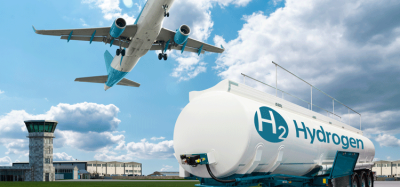ICAO stresses importance of civil aviation standards to safety
- Like
- Digg
- Del
- Tumblr
- VKontakte
- Buffer
- Love This
- Odnoklassniki
- Meneame
- Blogger
- Amazon
- Yahoo Mail
- Gmail
- AOL
- Newsvine
- HackerNews
- Evernote
- MySpace
- Mail.ru
- Viadeo
- Line
- Comments
- Yummly
- SMS
- Viber
- Telegram
- Subscribe
- Skype
- Facebook Messenger
- Kakao
- LiveJournal
- Yammer
- Edgar
- Fintel
- Mix
- Instapaper
- Copy Link
Posted: 21 September 2016 | International Airport Review | No comments yet
ICAO’s development and implementation of global standards has fostered the development of safe and sustainable aviation since the UN agency was created, declared Dr. Fang Liu, ICAO’s Secretary General…


ICAO’s development and implementation of global standards has fostered the development of safe and sustainable aviation since the UN agency was created, declared Dr. Fang Liu, ICAO’s Secretary General, at the General Assembly of the International Organisation for Standardisation (ISO) last week.


Over 12,000 Standards and Recommended Practices have now been appended to the 19 annexes of the Convention on International Civil Aviation, upon which ICAO is founded. All of these have been developed and adopted on the basis of intensive cooperation and consensus amongst ICAO’s member States, of which there are currently 191. They cover every international aspect of the industry: capacity and efficiency, security and facilitation, economic development, environmental impact, and of course safety, which is always the first priority in aviation.
“Air transport today carries more than 3.5 billion passengers and 51 million tonnes of freight annually,” Dr. Liu remarked.
“Our global sector experienced fewer than 2.8 major accidents per million departures in 2015. If you compare that to almost any other safety measure in the world, in any domain, it’s clearly apparent that international standards for civil aviation are very effective.”
Underscoring that compliance with ICAO Standards is key to international air connectivity, Dr. Liu described the standardisation dynamic that has resulted from the Organisation’s focus on safety as a “win-win.”
ICAO compliance drives sustainable development both directly, through the encouragement of investment in the modernisation of infrastructure and human resources, and indirectly, through the fostering of increased air traffic flows which consequently encourage local industries. The Secretary General highlighted that these contributions to socio-economic development will be critical to the achievement of the United Nation’s Agenda 2030 Sustainable Development Goals (SDGs), noting that 13 of the 17 SDGs are directly supported by ICAO’s Strategic Objectives.
Dr. Liu stressed the importance of cooperation and consensus as the foundation of ICAO’s successful development and implementation of these Standards.
“Given our positioning at the heart of a global network of world governments, private sector airlines and airports, and many other air transport stakeholders, cooperation and consensus are absolutely essential to our work,” she said.
“Another very important aspect of successful standardisation, in a context made up of very diversely resourced States and operators, is the work ICAO does to monitor compliance and coordinate targeted assistance to ensure effective Standards implementation. We have reprioritised our Organisation, under our ongoing ‘No Country Left Behind’ initiative, to ensure that all States and Regions have the assistance and, ultimately, the resources and partners they need to effectively set out and adhere to ICAO’s provisions.”

















